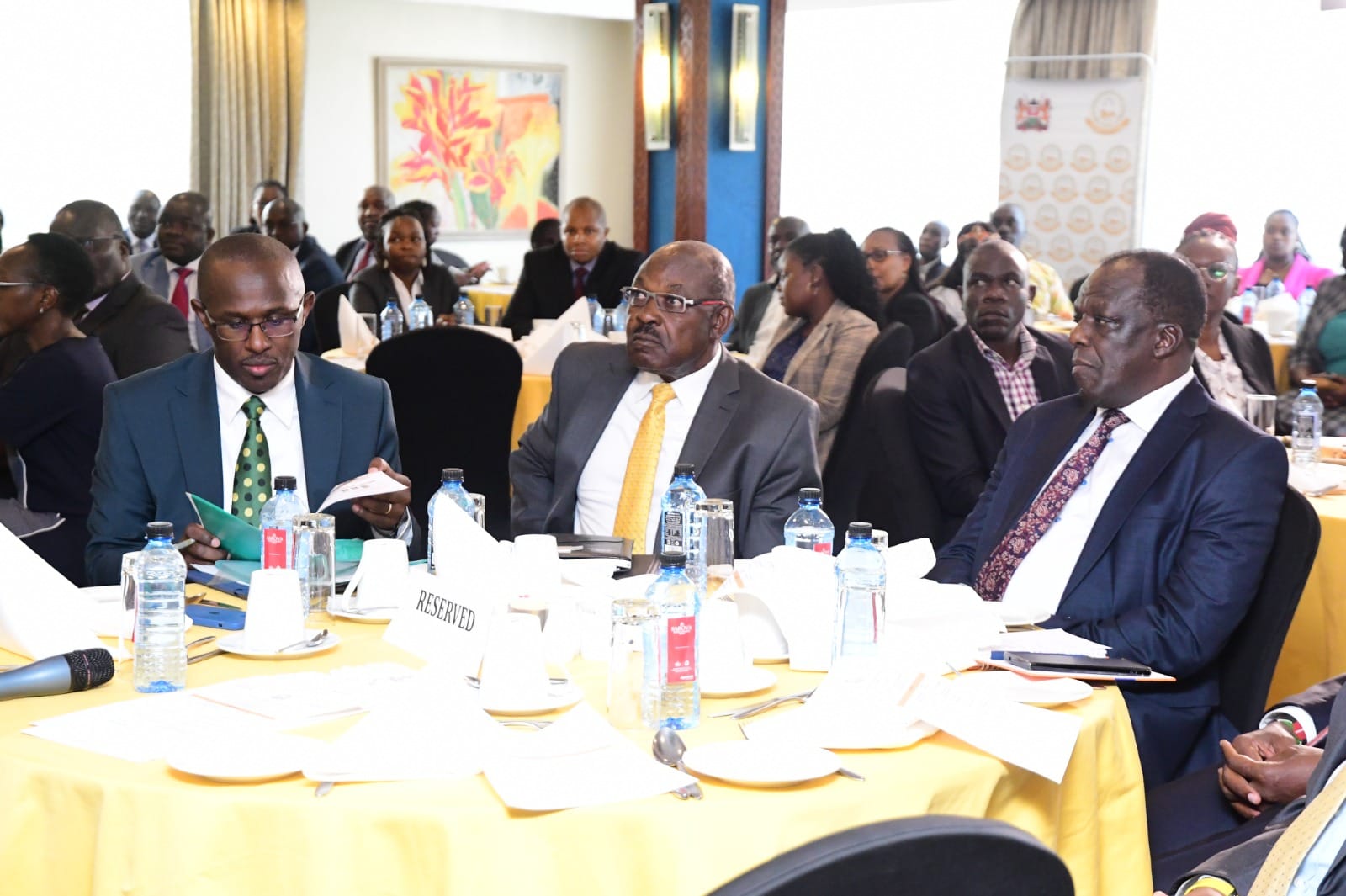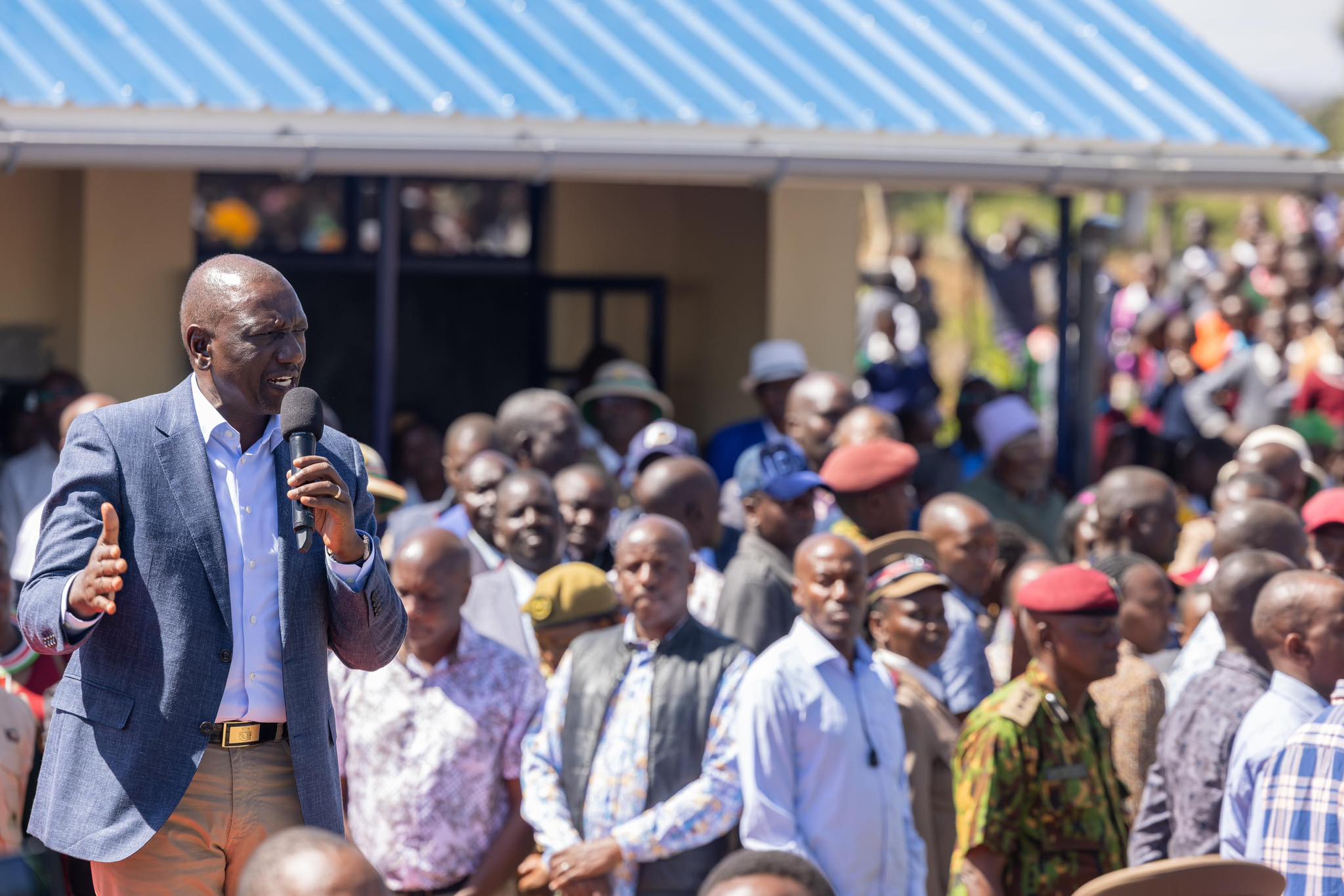Sacco Societies Regulatory Authority (SASRA) has released 2023 Annual SACCO Supervision Report, the report documents the performance, activities, and operations of SACCO Societies in Kenya.
The Cabinet Secretary Ministry of Cooperatives, Micro Small & Medium Enterprises (MSMEs) Wycliffe Oparanya who was the chief guest during release of the report on Wednesday said the SACCO industry has continued to grow, despite operating under very difficult economic conditions and several policy and market limitations.
The report indicated total membership among the 357-Regulated SACCOs has increased by 6.57% to 6.84 million in 2023 from 6.42 million reported in 2022.
The CS said the growth is a commendable growth rate however it represents just fewer than 30% of the total adult working population in Kenya.
The report indicated that loan portfolio by the Regulated SACCOs in 2023 increased by 11.50% to reach Kshs 758 billion; a marginal decline from 11.67% recorded in 2022.
Oparanya noted that although there was an increase in the growth rate of deposits by 9.95% in 2023 compared to 9.84% in 2022; the growth remains behind that of the loan portfolio which recorded a 11.50% growth. Thus the financing gap for loans was financed primarily through member share capital and retained earnings.
The Report by SASRA shows that 73.34% of the total assets of the SACCO industry is controlled by 53 SACCOs, with the remaining 304 sharing the balance of 26.66% of total assets.
“While this is uncommon in financial sector, it raises serious policy concerns on the fate of the small SACCOs often established by a community of like-minded individuals including farmers, fishermen, boda-boda operators, businesspersons, employees etc,” Oparanya said .
He noted that such small SACCOs often provide financial services to that community in a version that large institutions including large SACCOs may not match. But again these small SACCOs are resource-constrained in multiple ways (human capital, financial and technology) limiting their ability to compete in the market place.
In 2023 non-remitted amount stood at Ksh.2.59 Billion with 82 SACCOs. While this is an improvement from the high of Ksh.3.4billion reported in 2021, the impact on SACCO operations and hence members financial wellbeing has been devastating. Sadly, the biggest culprits in this challenge remain public sector employers lead by County Governments (owing Ksh.865 Million or 33%), public universities and tertiary education institutions (owing Ksh.958 Million or 34%).
Patrick Kilemi Principal Secretary, State Department Co-operatives assured Sacco members that deposits of the Saccos are safe and the government will ensure all their money are recovered for Saccos that have issues.
“The new CS has been supportive, he has the experience to steer the movement to positive path in ensuring assets of our people are protected,” he said.
Jack Ranguma Chairman, Board of Directors SASRA said the report provides an appreciation of the cooperative model and architecture as a global tool for financial inclusion based on the cooperative values, ethical beliefs and principles.
The report also provides insights into the global and national operations, financial condition and performance, and regulatory compliance of Regulated Saccos in the country and the challenges thereto.
“Besides, the report provides a basis for review and development of policy interventions to address emerging challenges in the Sacco industry as identified in the course of our supervisory endeavors,” Ranguma said.
SASRA CEO Peter Njuguna said the increase in membership of regulated SACCOs is a further testament of the increasing awareness and trust that Saccos can provide a viable financial intermediation.
The SACCO Authority has been consistently releasing the annual report since commencement of its operations in 2010. It called for adequate financial resources to achieve policy outcomes and effectively oversight the regulated SACCO industry.
By Obegi Malack
obegimalack@gmail.com
Get more stories from our website: Sacco Review.
For comments and clarifications, write to: Saccoreview@
Kindly follow us via our social media pages on Facebook: Sacco Review Newspaper for timely updates
Stay ahead of the pack! Grab the latest Sacco Review newspaper!



